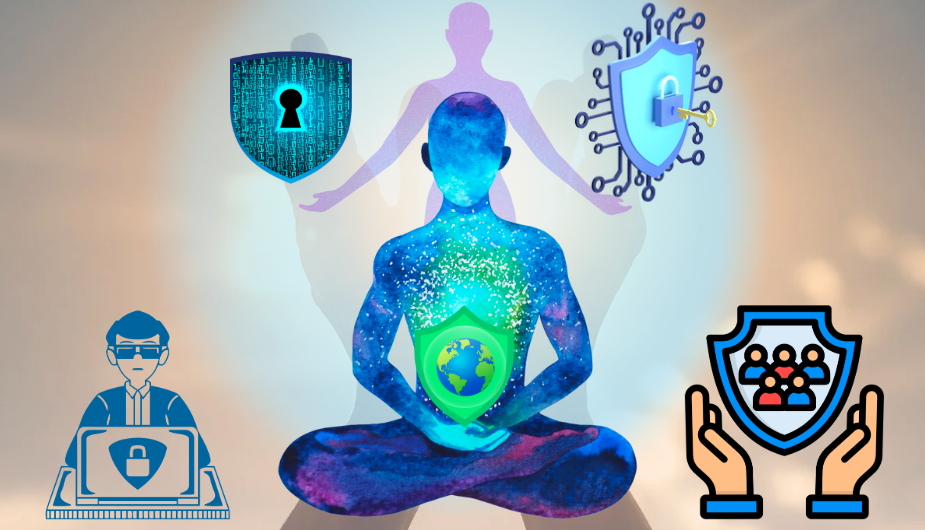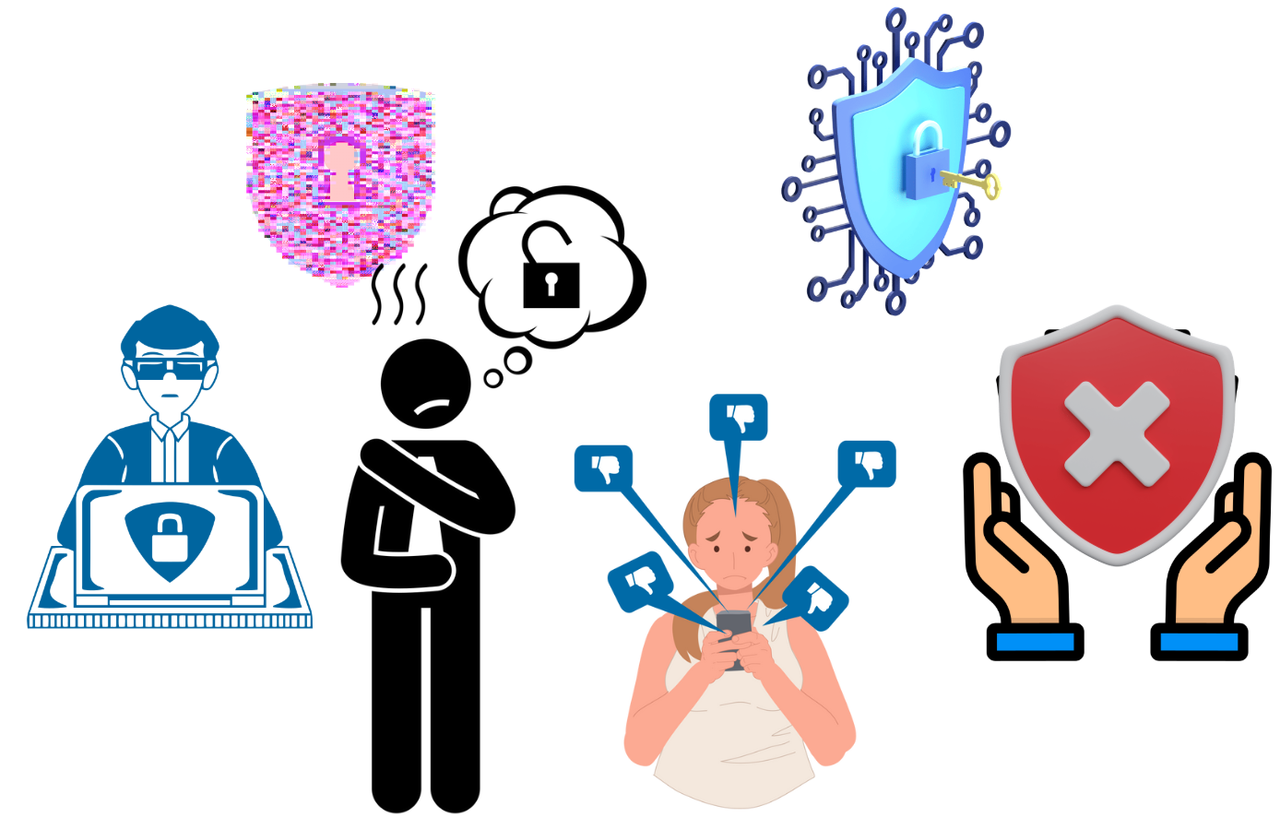Estar seguros se divide en varias partes, cuando se basa en seguridad física, emocional, social, financiera y digital se refiere a integralidad, cuando nos anticipamos para evitar riesgos o catástrofes, ejemplo: qué hacer antes, durante y después de un terremoto, se refiere a seguridad preventiva; la seguridad cambia con el tiempo lo que hoy resulta ser inofensivo y seguro mañana puede que no lo sea, a esto se le conoce como seguridad dinámica.
Les cuento y no con intención de alarmarlos, si existe aquí alguien nervioso mil disculpas, pero, no quiero dejarla pasar no existe una seguridad infinita o absoluta, siempre va a haber un margen de inseguridad o peligro por muy mínimo que sea, ahora no olvidemos que la seguridad es objetiva en la cual se observan: hechos, precios, protocolos, por otro lado, la seguridad subjetiva es cuando está de por medio la percepción o sensación de sentirse seguro.
El buen desarrollo humano y social depende mucho de encontrarnos seguros, sin seguridad es muy difícil concentrarnos en actividades, trabajo u ocio, nuestro aprendizaje queda en segundo plano; prevalece el miedo ese que inhibe la innovación y la convivencia.
Para nadie es una mentira, que nuestra sociedad actual tiende a carecer de seguridad, o posee ciertas fallas, a pesar de esto cada uno de nosotros es responsable de contribuir con un entorno más seguro, yo por ejemplo el sábado me fue hacer mantenimiento a mi medio de transporte, desaparecí más de ocho horas seguidas, le hago mantenimiento constante porque, prácticamente vivo montado en ella, y una mínima falla me puede dejar botado, antes de salir a pasear me aseguro que todo esté en orden, cadena, pedales, rines, asientos, porque puedo confiar que mi bicicleta está en buenas condiciones, pero, la seguridad mata confianza; sentirnos seguros, hace que podamos concentrarnos en nuestra rutina diaria, aprender e incluso comprender.
La seguridad permite que nos podamos exponer a nuevas experiencias, construimos y nos relacionamos con las personas de una forma más profunda y personal, una persona que está segura en el espacio que la rodea, en su toma de decisiones, en como se enfrenta al día a día posee motivación y ánimos para dar cada paso propuesto, arriba les dije seguridad mato confianza, y así es, pero, siempre hay un, pero, un exceso de medidas, vigilancias o desconfianza puede restringir las relaciones y la creatividad.
La seguridad es un derecho, forma parte de una de las tantas necesidades básicas después de las necesidades fisiológicas, si no logramos sentirnos seguros, todo nuestro ser se verá afectado, tengamos presentes que la seguridad es un camino que se construye día tras día no es una meta, el desafío está en cultivar un entorno seguro a nuestro alrededor, sin dejar que el miedo levante muros que nos impidan disfrutar del viaje de la vida.
Imagenes creadas con CANVA PRO
Gracias por leer mi post.
English
The absence or minimal expectation of danger, risk, or threat is known as security. This means having physical integrity, emotional stability, and social and economic protection, either as an individual or as a member of an organized society. Security does not only refer to protection from existing dangers or threats, but also to that feeling of confidence and peace of mind that allows one to act and live without constant fear.
Being safe is divided into several parts. When it is based on physical, emotional, social, financial, and digital security, it refers to comprehensiveness. When we anticipate risks or catastrophes in order to avoid them, for example, what to do before, during, and after an earthquake, it refers to preventive security. Security changes over time; what is harmless and safe today may not be so tomorrow. This is known as dynamic security.
I am telling you this with no intention of alarming you. If anyone here is nervous, I apologize, but I don't want to leave this out: there is no such thing as infinite or absolute safety. There will always be a margin of insecurity or danger, however small. Now, let's not forget that safety is objective, in which facts, prices, and protocols are observed. On the other hand, subjective safety is when the perception or feeling of being safe is involved.
Good human and social development depends greatly on feeling safe. Without safety, it is very difficult to concentrate on activities, work, or leisure, and our learning takes a back seat. Fear prevails, inhibiting innovation and coexistence.
It is no secret that our current society tends to lack security or has certain flaws. Despite this, each of us is responsible for contributing to a safer environment. For example, on Saturday I went to do maintenance on my means of transportation. I was gone for more than eight hours straight. I do constant maintenance because I practically live on it, and even the smallest fault can leave me stranded. Before going out for a ride, I make sure that everything is in order—the chain, pedals, wheels, and seats—because I can trust that my bike is in good condition. However, safety kills confidence; feeling safe allows us to concentrate on our daily routine, learn, and even understand.
Safety allows us to expose ourselves to new experiences, build relationships, and connect with people in a deeper and more personal way. A person who feels safe in their surroundings, in their decision-making, and in how they face each day has the motivation and encouragement to take each step they set out to take. Above, I said that safety kills confidence, and that's true, However, there is always a “but.” Excessive measures, surveillance, or mistrust can restrict relationships and creativity.
Security is a right; it is one of the many basic needs after physiological needs. If we cannot feel secure, our whole being will be affected. Let us remember that security is a path that is built day by day; it is not a goal. The challenge is to cultivate a secure environment around us, without letting fear build walls that prevent us from enjoying the journey of life.
Thanks for read my post.
Images created with CANVA PRO
Translated with DeepL.com (free version)

